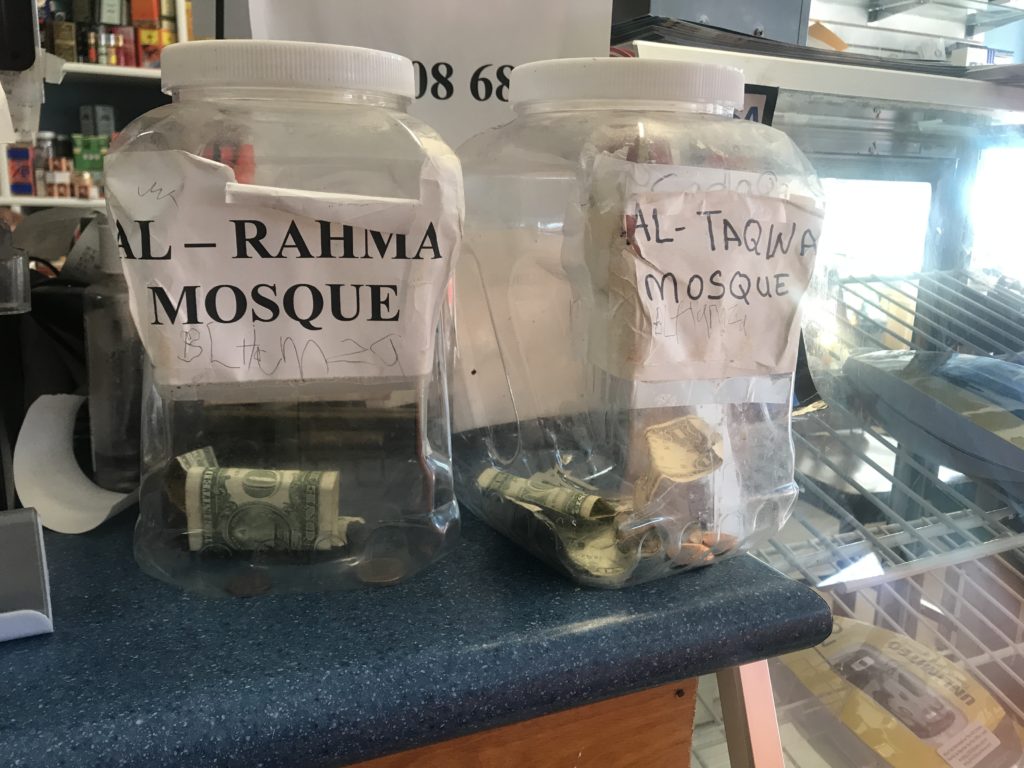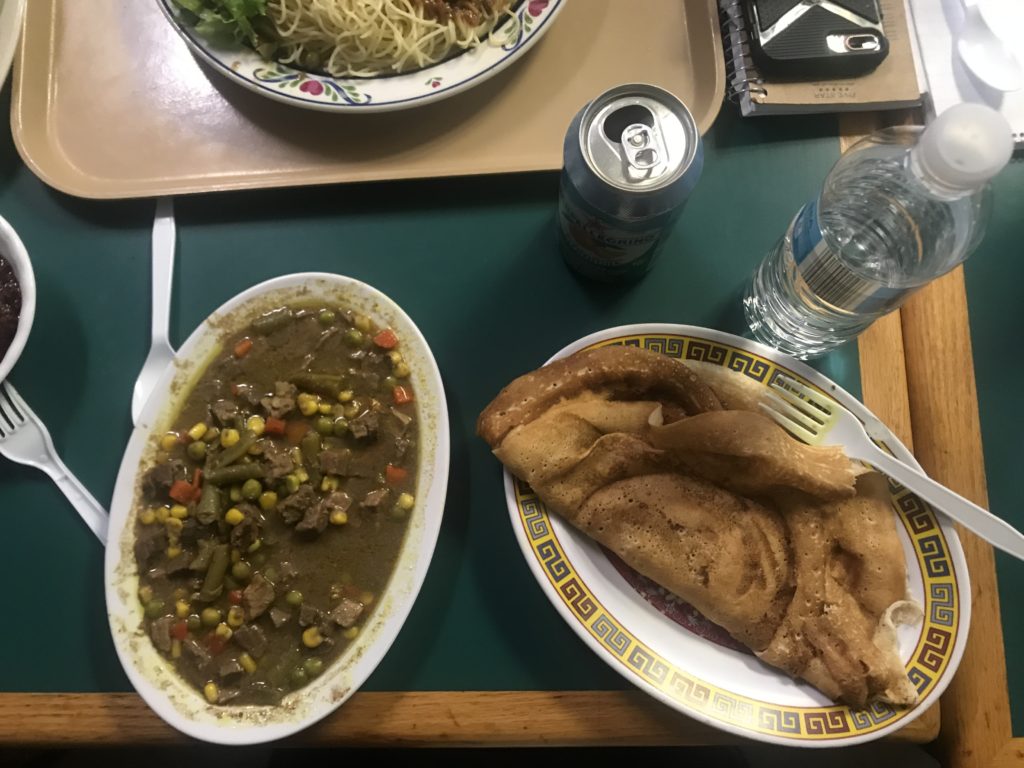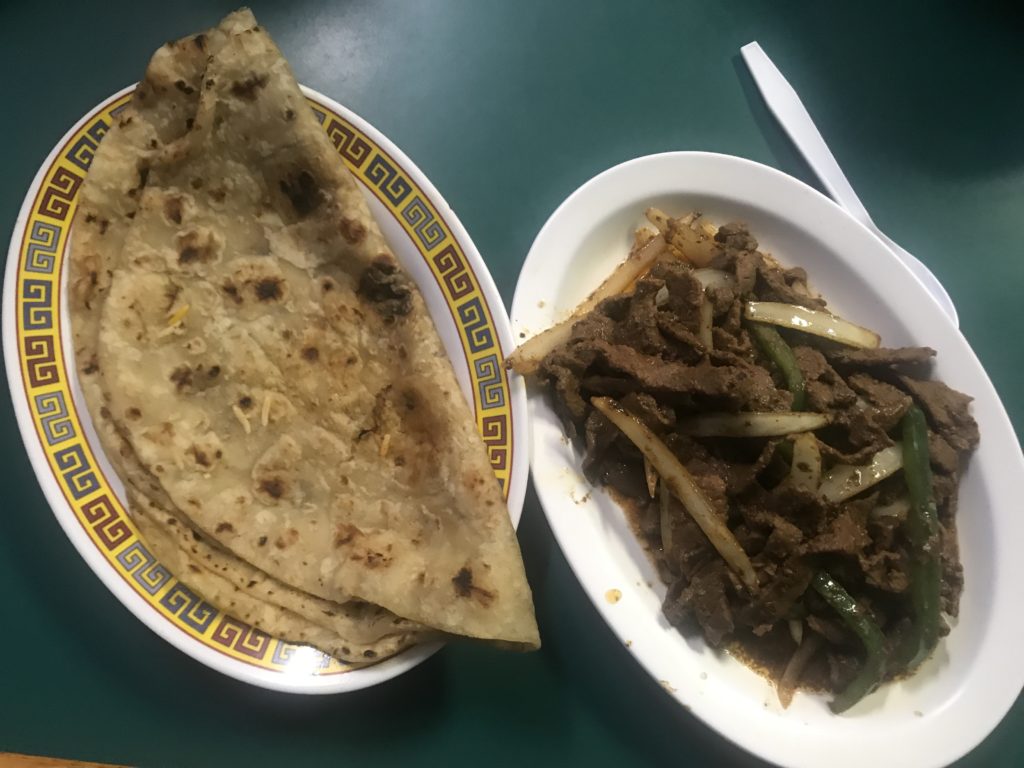It isn’t clear that Barron’s Amin Restaurant & Grocery is in fact a restaurant upon first entrance.
Once through the doorway, the eye first notices a glass display case with slightly fewer desserts than one might expect to see at a bakery. The wall behind is a disheveled collage of various beauty and healthcare products available for purchase, and on the counter are two tip jars: one ripped on the corner and secured with Scotch tape and the words ‘Al-Rahma Mosque’ in typed font, the other is handwritten with Sharpie with the words ‘Al-Toqwa Mosque.’

Past the counter is an area with tall shelves stacked with rice and other ingredients that make up the only Somali grocery store in the entire town.
There’s another room lit by the sunlight that comes in from a window facing the street. The menu is on the wall opposite of that with a display of pictures of various Somali dishes. There’s a soccer game on the TV in this room and two men are at a table watching.
The dining and kitchen area is pocketed away in another area of the establishment. The whole place belongs to Kaltuma Hassan, but this is the room she seems to spend most of her time.
Hassan was a businesswoman in South Africa before she moved to Barron in 2015.
“Problem in South Africa,” she said, is “in the morning, you are rich, by the afternoon you are poor.”
She said she never felt safe or stable as a restaurant owner in South Africa, but still it was more safe than her homeland of Somalia.
She said that because of the civil war in Somalia, she left the country when she was just 11-years-old.
“If there is war and fear how can you live?” she said.
Fast forward to 2015, and she was finally able to leave the continent of Africa as a refugee and come to America.
She is the 33rd person to own this space in Barron and to run it as a restaurant. It’s clear that this is a family business from the open kitchen window that has a view of her and her two children preparing meals for customers.
Hassan says she has no regrets of starting her restaurant in Barron, and that since opening business has been good.
“Your food is really good,” a patron tells her.
She smiles and thanks them.
This restaurant, and the people who come in to eat, are a small reason why she says she enjoys living in America.
“Barron is our home,” she said. “I’m glad America gave me a settlement here.”
Hassan stressed over and over the sense of community she feels with her Somali neighbors but also with everyone around her.
“In America, if you don’t become part of the community you suffer a lot,” she said. “A community is a friend, it is everything to you. A community is important. It is very, very important. It is where you share happiness or badness.”
So, that is what it means to be a business owner in America for Kaltuma Hassan. She invites the people of Barron and welcomes outsiders from other areas into her community by providing a place for them to sit and to eat food that her family crafts for them.
It’s this sharing of culture that allows Hassan to feel at home in a town 8,000 miles from her birthplace.

